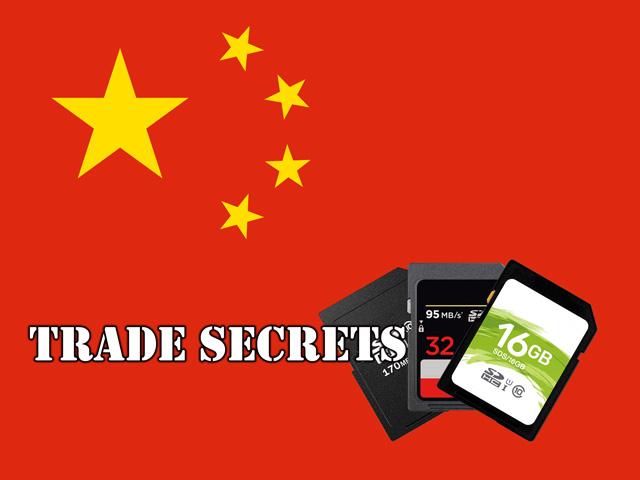Prison Sentence for Ag Technology Theft
Chinese National, a Former Monsanto Scientist, Sentenced for Plan to Steal Trade Secrets
OMAHA (DTN) -- A former Monsanto scientist who was caught trying to steal trade secrets to take to China was sentenced Thursday to more than two years in prison and the likelihood of deportation once his sentence is completed.
Haitao Xiang, 44, is a Chinese national who was initially indicted on eight counts in November 2019, more than two years after he had been arrested trying to leave the U.S. for China. Xiang was caught in June 2017 boarding a plane with technology from then-Monsanto and its subsidiary Climate Corp.
Xiang pleaded guilty in January to one count of conspiracy to commit economic espionage. He was sentenced Thursday to at least 29 months in federal prison. Xiang has been in federal custody since his indictment and has served the entire 29 months of his sentence, according to his attorney. The sentencing included three years supervised probation and the likelihood the federal government would deport Xiang. Xiang also is required to pay $150,458 for legal fees incurred by Bayer AG, which purchased Monsanto and its subsidiaries in 2018. The case was out of the U.S. District Court for Eastern Missouri.
The case against Xiang highlighted some of the challenges with China's efforts to support the theft of intellectual property, a longstanding complaint by the U.S. government against China. Xiang's attempted theft became part of China's "Hundred Talents Program" meant to recruit Chinese scientists and any technology they can bring back with them.
Xiang worked for nearly a decade as an advanced imaging scientist at Climate Corp., focusing on remote sensing work to estimate soil properties using satellite imagery, court records state. A permanent U.S. resident with Chinese citizenship, Xiang worked on the "Nutrient Optimizer" product that was part of an online farming software platform. The Nutrient Optimizer was a major investment for Monsanto and Climate Corp., requiring years of work and hundreds of millions of dollars to develop.
P[L1] D[0x0] M[300x250] OOP[F] ADUNIT[] T[]
Climate Corp. and Monsanto had worked for years on platforms to visualize important agronomic field data and collect and store that information. The precision-agriculture tools help farmers with various agronomic decisions such as customizing fertilizer plans and seeding rates. The foundation of the Nutrient Optimizer is a "point-based biogeochemical process model that simulated biological, chemical, hydrological, and thermal processes occurring within an agricultural field."
Monsanto and Climate Corp. took several steps to protect the technology around the Nutrient Optimizer, which included restricted access to facilities, video security cameras on the premises, log-in passwords for computers, non-disclosure agreements with employees, identification badges and annual training with employees on the protection of trade secrets.
At some point Xiang began sending information about his work to people in China. From at least June 2015 until June 10, 2017, while working for Climate Corp., Xiang began communicating about his work with people within the Chinese government about potential jobs at the Chinese Academy of Sciences Nanjing Institute of Soil Science.
Xiang and a recruiter in China began discussing the "Hundred Talents Program," a program set up by the Chinese government to recruit Chinese researchers working overseas in key scientific fields. Recruits to these talent programs were sought out to work for the Chinese government in specific areas of research. That typically required replicating key areas of research and development of intellectual property. Xiang then began exchanging more emails about the type of position he would like to work in once returning to China.
Xiang then allegedly traveled in both the U.S. and China talking about his knowledge and skills. From March 2014 until June 2017, Xiang also "copied, duplicated, transmitted and downloaded the Nutrient Optimizer from Monsanto systems."
In February 2016, Xiang had several communications with recruiters from the Chinese talent program and officially submitted an application. In describing his talents and abilities, Xiang stated he could do things that could only happen by duplicating the Nutrient Optimizer and its digital platform.
In what might have been Xiang's undoing, the indictment stated Xiang conducted some Google searches on a Monsanto computer looking for information on ways to avoid intellectual property theft being used as "evidence."
Starting in April 2016 and running through at least November that year, Xiang both traveled again to China to interview for a position at the Nanjing Institute of Soil Science and was considered a candidate for a job there. Through May of 2017, Xiang went back and forth with people located in China about his possible job, compensation, benefits and research he would conduct.
Xiang told Monsanto and Climate Corp on May 24, 2017, he would resign from his job and he left the position on June 9, 2017. In an exit interview, Xiang said he had shredded all physical documents related to his work and did not keep any electronic storage devices or hard drives containing Monsanto and Climate Corp. property. He also stated he had not sent any such information to his private email address. Xiang certified to the companies he did not keep any confidential information or trade secrets related to Monsanto and Climate Corp.
During his exit interview, Xiang was confronted about some of his Google searches. Yet, the original indictment stated, "After completing his interview ... Xiang copied and downloaded the Nutrient Optimizer to a Micro SD Card, and drove from St. Louis, Mo., to Chicago O'Hare airport." Xiang bought a same-day, one-way ticket to China, but was arrested at the airport.
Chris Clayton can be reached at Chris.Clayton@dtn.com
Follow him on Twitter @ChrisClaytonDTN
(c) Copyright 2022 DTN, LLC. All rights reserved.



